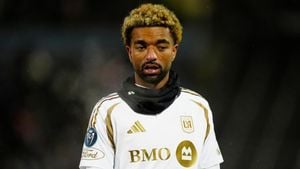Pope Francis, aged 88, remains in a "critical" condition following severe respiratory complications, as reported by the Vatican on Saturday. Having been hospitalized for nearly ten days at the Gemelli Hospital in Rome, the pontiff faces challenges stemming from pneumonia and complex respiratory infections.
The Vatican stated on Saturday morning, "The Holy Father has suffered a prolonged asthma-like respiratory crisis requiring high-flow oxygen." This situation, unfortunately, has worsened since Friday, and intense medical attention is required. The Pope received blood transfusions as his recent blood tests revealed thrombocytopenia—a condition linked to anemia.
Francisco is currently stable yet remains under constant care, as physicians fear his delicate health may lead to complications, particularly the dreaded risk of sepsis, which could follow if pathogens from his respiratory system enter the bloodstream. Dr. Sergio Alfieri, head of medicine at Gemelli Hospital, emphasized the risks associated with sepsis, stating, "The combination of sepsis with respiratory issues at his age would be very difficult to overcome." Despite the seriousness, the Pope has been able to spend his day awake and alert, albeit with increased discomfort compared to previous days.
Initially admitted on February 14 for aggravated bronchitis, the Pope's health has since declined requiring various treatments, including antibiotics, corticosteroids, and supplemental oxygen when necessary. His age and previous respiratory ailments contribute to his vulnerability, and medical staff have stressed he is not currently "out of danger."
Despite fluctuative reports, Cardinals and Vatican officials have firmly denied rumors about potential discussions of the Pope's resignation. Cardinal Pietro Parolin dismissed these speculations, stating, "We are focused on the health of the Holy Father and his recovery. That is what truly matters right now."
Nevertheless, speculation about the possibility of resignation lingers as news outlets have reflected on precedents such as Pope Benedict XVI's resignation concerning health. Should he decide to step down, he could become the second Pope to do so, prompting discussions around what this might mean for the Catholic Church's leadership structure.
The Pope was scheduled to lead significant events this weekend, including the Jubilee of Deacons, but has cancelled attendance. Instead, the ceremonies will continue with organizers stepping in for him, maintaining the spirit of the events even amid his absence. This reflects not only the challenges he faces but also the reverberations his health has throughout the Catholic community.
Supporters and faithful from around the globe have gathered near the hospital, praying for the Pope's health and well-being, showing solidarity during this challenging time. Makeshift altars of candles and flowers have emerged outside the hospital, as the faithful unite to offer prayers for their leader's recovery, embodying the hope and faith shared among the Church's worldwide followers.
While the Vatican continues to manage communications about the Pope's health discreetly, there is cautious optimism among the medical team. They have indicated he is responding positively to treatments, even if temporarily. The pontiff has shown resilience, with reports noting his ability to engage with staff and maintain his strength of spirit, as well as opening the Year of Jubilee earlier even amid his illness.
Looking forward, the Vatican has indicated it will only share specific updates as the medical team monitors his progress closely. The coming days are pivotal, as doctors continue to monitor his response to treatments, weighing the risks and his recovery prospects carefully.
Supporters worldwide remain hopeful, clinging to the belief of divine intervention for Pope Francis's recovery. Collective prayers and mass gatherings at various religious institutions underline the desire for good news and healing during this trying period for the Vatican and its followers.



